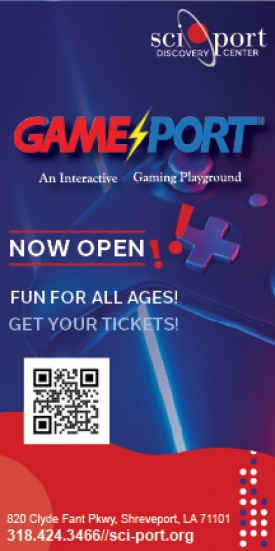North Louisiana Human Services District

Beginning in July, the Northwest Louisiana Human Services District will celebrate its 10th anniversary of helping people fight and overcome addictions and disabilities.
Executive Director Douglas Efferson said, “We’re proud of the 10-year anniversary.”
They provide core services as defined by the state to assist the uninsured and those on Medicaid with services they might not otherwise obtain, providing a safety net for the needs of those populations.
The district came into being when the state decentralized control of these programs. Efferson said Baton Rouge wanted to move away from a central control model for behavioral health services.
“They wanted folks who have mental illness and addiction to have more control over the focus and the direction of the services provided. One size doesn’t fit all, so what works in New Orleans doesn’t really work in Shreveport. So, they created us as the Northwest Louisiana Human Services District and allowed us to have our own board of directors. We operate like a political subdivision.”
The district provides mental health, addictive disorder and developmental disability services to individuals living in Bienville, Bossier, Caddo, Claiborne, DeSoto, Natchitoches, Red River, Sabine and Webster parishes. The district office is in Shreveport, and the regional offices are in Natchitoches, Minden, Many, Shreveport and Bossier City.
They operate behavioral health clinics in Shreveport, Natchitoches, Minden and Many. Eighty percent of their behavioral health services are provided to Medicaid and uninsured clients, and they treat over 3,000 clients annually.
“One of the things I like to say: If you go around town, there are a lot of rehab centers,” Efferson noted. “Our job as an agent of the state is to be that safety net service provider for those who just can’t identify somebody to meet their needs for mental health or addiction services.
“We obviously can’t take care of everybody. But for those who are uninsured, or on Medicaid, or in areas where they have a hard time finding a provider or need a specialized provider, then we get those referrals.”
He said it’s “neat” to be the place that can help when clients can’t find the services they need anywhere else. “We are not out there to compete with the private sector. Most private sector people take no more than five to seven percent of the population. With the funds the state provides us, we are able to bring that way up.”
He said referrals come from word-of-mouth from existing clients and flow from judges and correction facilities as people exit the legal system. He said they also get referrals from school nurses who are aware of issues in their student populations.
“We treat children, adolescents and adults. Of course, our disability services and developmental disability service [treat everyone],” Efferson said. He pointed out that developmental disabilities are different from general disabilities, which can occur later in life.
Clients receive “individual treatment, group patient, in-patient, out-patient, all [those kinds]. That’s a big part of what we do, addiction services. But the state in its wisdom said you can also offer disability programs,” Efferson said.
Covid was educational for the district when people could no longer meet face to face, an obvious problem with those struggling with addictions and disabilities. Efferson said they managed to overcome the challenges of telemedicine with some creative workarounds that kept clients served.
Two of the front-page issues in America are the fentanyl and opioid challenges. The district has not been spared from its problems. “We are pretty plugged into the fentanyl and opioid problem. The prescription problem has pretty much slowed down. Physicians aren’t writing prescriptions for opioids as much.”
Family physicians are restricted to the number of prescriptions they can write for a patient and the duration of that prescription. If they need more, they are referred to a pain management specialist.
The district has partnerships with several different agencies to reach out to the communities they serve. They include the Council on Alcoholism and Drug Abuse, Louisiana Association of Compulsive Gambling, Easter Seals, Hope for the Homeless, Volunteers of America, Goodwill Industries of Northwest Louisiana, Cullen Association Hope Center and Merake, among others. They also work with the school boards in Bienville, Bossier, Caddo, Sabine, Webster parishes, and the School District Alliance. They also have a partnership with the Louisiana Tech University Department of Kinesiology.
They provide contract and prevention services to over 16,000 individuals annually, according to Efferson.
“Our fourth thing is prevention to provide services to encourage people to stop smoking, curb their drinking, encourage kids not to get on the wrong path. We have a very aggressive prevention program that goes out into schools.”
From cradle to late in life, the Northwest Louisiana Human Services District provides local care and treatment for people in need in our area.

